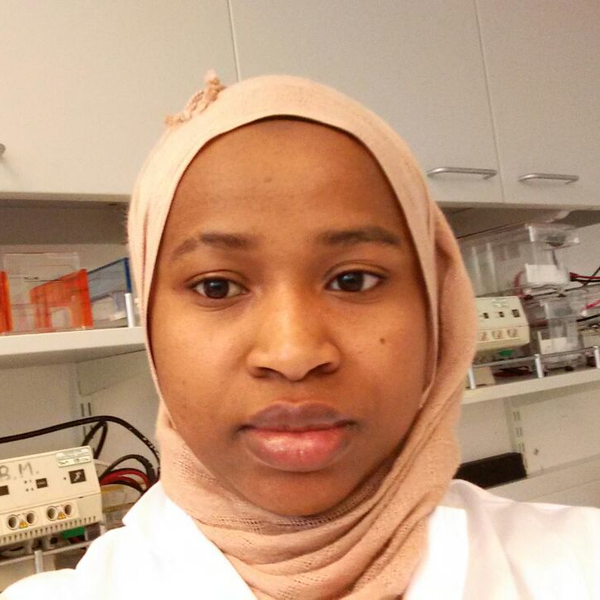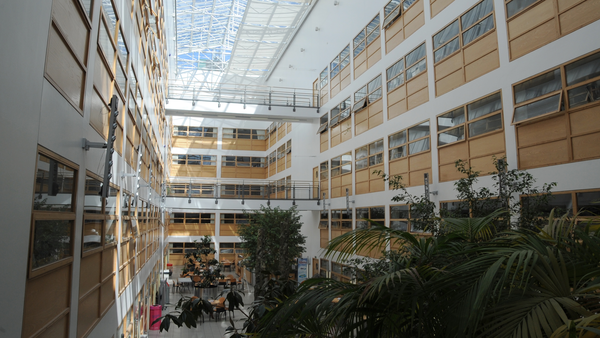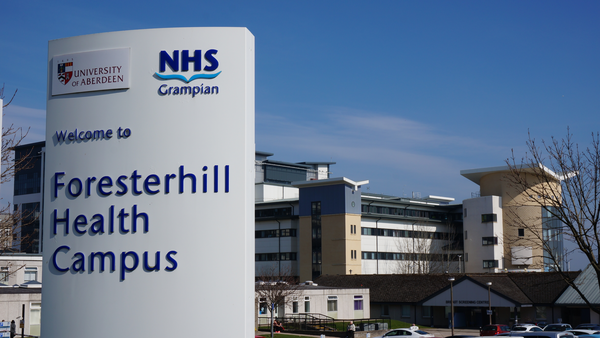Aisha Gidado

Designed to develop both your research and practical skills, our MSc in Microbiology will enhance your academic knowledge of the latest advances in microbiology and improve your employability and career prospects.
The MSc degree in Microbiology will take you through a wide-ranging curriculum describing some of the latest advances in microbiology. It includes courses on microbiology, applied statistics, bioinformatics, regulation of microbial adaptation and host-pathogen interactions in infection and disease. The MSc Microbiology aims to provide you with:
This programme is ideal for students and scientists who would like to improve their career prospects, fill skills gaps and further their hands-on microbiology research experience.
This programme is available to start in September or January.
We will endeavour to make all course options available. However, these may be subject to change - see our Student Terms and Conditions page.
Self-funded international students enrolling on postgraduate taught (PGT) programmes will receive one of our Aberdeen Global Scholarships, ranging from £3,000 to £8,000, depending on your domicile country. Learn more about the Aberdeen Global Scholarships here.
To see our full range of scholarships, visit our Funding Database.
The programme is taught through a flexible mix of lectures and small group tutorials, practical classes, practical computer workshops and research tutorials. There is also an expectation of self-learning, where you will engage with current microbiology research literature to enhance your knowledge gained and discussed in taught sessions. All lecture material is available on MyAberdeen, the University’s Virtual Learning Environment.
The programme also involves an extended, hands-on laboratory-based research project, supervised by experienced and research-active academic staff. Much of the teaching on this course is participatory and students are expected to consolidate all taught content by completing related tasks and activities and engaging in independent study in their own time.
Taught courses are assessed by a combination of written assignments, reports and by examination. Candidates will present the results of their research project in an oral presentation and as a thesis and may be required to attend an oral examination with the external examiner. Candidates must pass all courses at an appropriate standard for the award of the MSc degree.
The information below is provided as a guide only and does not guarantee entry to the University of Aberdeen.
A second class Honours degree (2:2 or above) or equivalent qualification in Microbiology or other biological science degree is required for entry onto this programme.
Please check the In My Country pages to find out if your degree is equivalent.
Please enter your country to view country-specific entry requirements.
To study for a Postgraduate Taught degree at the University of Aberdeen it is essential that you can speak, understand, read, and write English fluently. The minimum requirements for this degree are as follows:
IELTS Academic:
OVERALL - 6.5 with: Listening - 5.5; Reading - 6.0; Speaking - 5.5; Writing - 6.0
TOEFL iBT:
OVERALL - 90 with: Listening - 17; Reading - 21; Speaking - 20; Writing - 21
PTE Academic:
OVERALL - 62 with: Listening - 59; Reading - 59; Speaking - 59; Writing - 59
Cambridge English B2 First, C1 Advanced or C2 Proficiency:
OVERALL - 176 with: Listening - 162; Reading - 169; Speaking - 162; Writing - 169
Read more about specific English Language requirements here.
You will be required to supply the following documentation with your application as proof you meet the entry requirements of this degree programme. If you have not yet completed your current programme of study, then you can still apply and you can provide your Degree Certificate at a later date.
Eligible self-funded postgraduate taught (PGT) students will receive the Aberdeen Global Scholarship. Explore our Global Scholarships, including eligibility details, on our dedicated page.
Aberdeen Global ScholarshipsThe MSc Microbiology Programme will provide you with the academic, analytical and practical skills to assist you in to many careers.
Many of our graduates choose to continue in research careers and begin PhDs or become research scientists (research assistants or technicians). Our scientists have obtained posts in Universities, industry (including oil and gas), biotechnology and hospital diagnostic and pathology laboratories.
More generally, microbiologists can use their training in education, working in schools, colleges of further education and in Universities. Further opportunities are available to apply microbiology training in scientific publishing, in patent offices working on biological patents, in science outreach and contributing to the public understanding of microbiological issues.
The programme will be delivered by an experienced, multidisciplinary team of internationally renowned experts in microbiology.
You will be taught by a range of experts including professors, lecturers, teaching fellows and postgraduate tutors. However, these may be subject to change - see our Student Terms and Conditions page.

Focused on developing future effective therapies, the Institute of Medical Sciences houses nearly 400 researchers and support staff working on cutting-edge biomedical subjects aimed at understanding the human body's response to infection and disease.

The Foresterhill Health Campus is one of the largest clinical complexes in Europe which includes the Medical School, large teaching hospital, the Institute of Medical Sciences and the Rowett Institute.